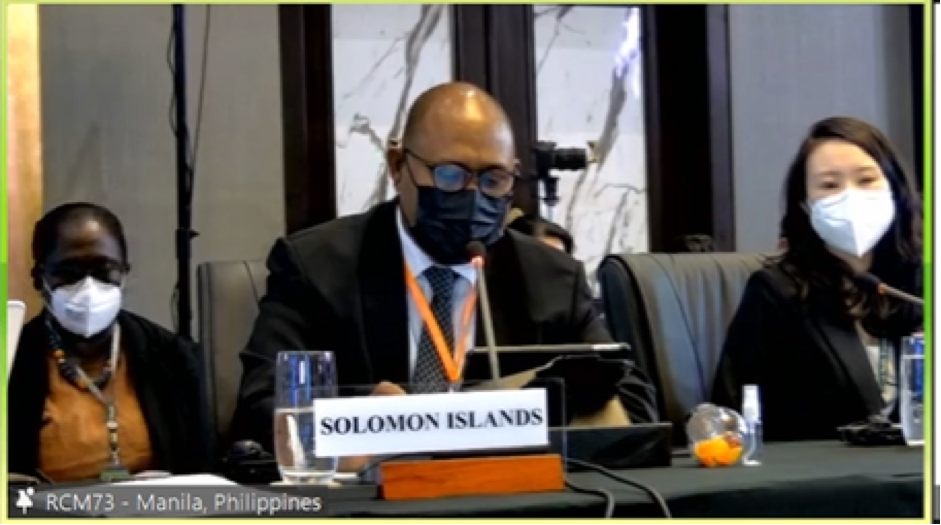

Health Minister describes low mortality rate in WPR despite COVID-19 pandemic, a major achievement
“Chair, as I reflect on the report of the WHO’s Regional Director for the Western Pacific Region, I see resilience demonstrated by our region in weathering the storm inflicted upon us by COVID-19. Our region is the home to a quarter of the World’s Population, yet we performed comparatively well with the lowest mortality rate, this is truly a major achievement”,
Health Minister Hon. Dr Culwick Togamana made this statement when joining other health ministers in the Western Pacific Region (WPR) to respond to the annual report ending June 2022 of the WHO Regional Director, for the Western Pacific Region at the WHO 73rd Western Pacific Regional Committee Meeting, held this week in Manila, Philippines.
Dr. Togamana thanked the Regional Director, Dr Takeshi Kasai, and the Western Pacific Region Office Team for the leadership and the support rendered to member states as efforts against COVID-19 continue.
He explained that the pandemic has provided important lessons on pandemic preparedness and health system strengthening. “As highlighted in the Regional Director’s report, the Implementation of the Asia Pacific Strategy for emerging diseases and public health emergencies (APSED III) has greatly helped us with the development of a National Health Emergency Response Plan, aligning it with the National Disaster Management Plan, well before the pandemic”,
“Chair, this has enabled multi-agency collaboration and mobilization of resources to support front liners doing border control, quarantine and testing of suspects. We also developed a COVID-19 specific Preparedness and Response Plan which guided activity budgeting and implementation, since a pandemic of this scale is quite different to managing emergencies that occur on a more regular basis”.
With the impact of COVID-19, Dr Togamana explained that implementation of public health programme were badly affected.
“Chair Measles, Mumps and Rubella (MMR) coverage declined from 99.1 percent in 2019 to 69.4 percent in 2021 triggering nationwide supplementary immunization activities early this year to scale up routine immunization coverage. Other programmes severely affected includes Malaria control, TB/leprosy and Non-Communicable Diseases”
“Compounding all these are increased stock-outs of essential drugs and diagnostics supplies which is partly due to disruptions with the supply chain and procurement processes”, highlighted Dr Togamana.
With the challenges and issues outlined, Dr Togamana thanked donors and partners for their support that enabled the country to overcome many difficulties and challenges faced.
“I thank the WHO as well as Australia, China, New Zealand, United Kingdom, USA, India, Japan, UNICEF, World Bank and ADB and many in the private sector whom have also contributed significantly. Furthermore, thank you to the churches, civil society groups, communities and all frontline and support staff within health and other line ministries that have truly demonstrated solidarity and unity in working closely with health to triumph over COVID-19”.
-MHMS Press